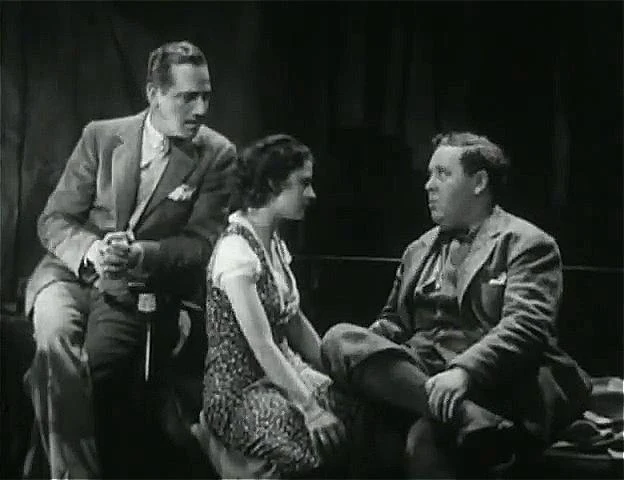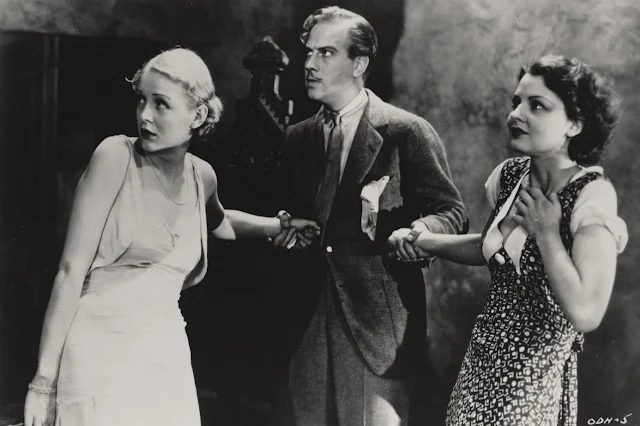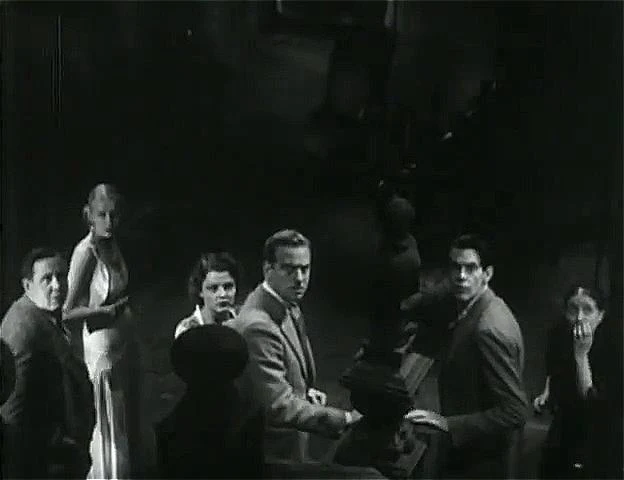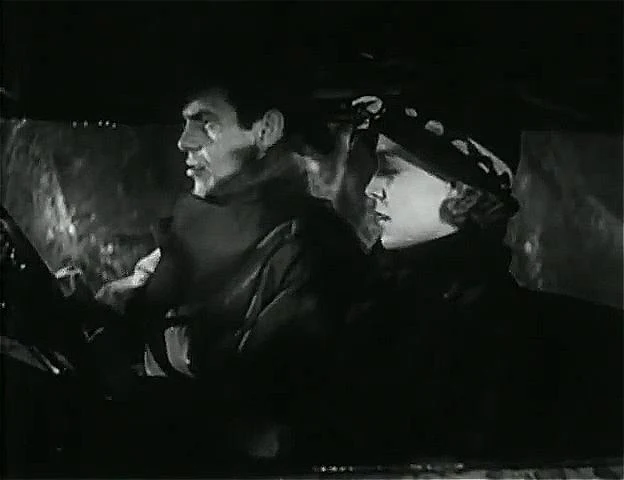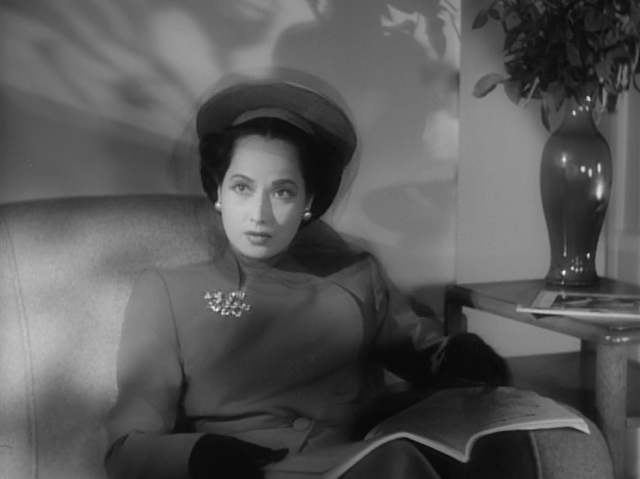 |
| Constance Bennett, Melvyn Douglas, Greta Garbo, and Robert Sterling in Two-Faced Woman |
Two-Faced Woman is famous for only one thing: It was Greta Garbo's last film. Otherwise, it's a confused attempt at a screwball comedy, meant in part to revamp Garbo's image, which had largely been created in costume dramas like Queen Christina (Rouben Mamoulian, 1933), Anna Karenina (Clarence Brown, 1935), and her greatest triumph, Camille (George Cukor, 1936). Her most recent hit, Ernst Lubitsch's Ninotchka (1939), had been hyped with the tagline "Garbo Laughs," and MGM thought giving Garbo a looser, more contemporary image might be profitable. So in Two-Faced Woman, she not only laughs, she skis, swims, and even dances. She's also reunited with her Ninotchka co-star, Melvyn Douglas, who plays Larry Blake, a New York magazine editor-publisher who falls (quite literally, down a mountainside) for Garbo's outdoorsy ski instructor. They marry in haste, and you know what that means. Garbo's character, Karin, doesn't want to live in the city, but when Larry spends more and more time there, she gets fed up and pursues him. Eventually, through a variety of plot contrivances, she pretends to be her own twin sister, Katherine, a vamp who drinks and smokes and dances -- all things that Karin doesn't do. At some point, the censors intervened and made the script indicate that Larry sees through this imposture, so that when he falls for the vivacious Katherine instead of the virtuous Karin, we know that he's just pretending. It's a familiar trope in sitcoms and screwball comedy, but the screenplay botches it badly. There are some bright moments contributed by Constance Bennett as the "other woman" in Larry's life and Ruth Gordon as his secretary, but for the most part it's confused and unfunny -- even the usually reliably brilliant Roland Young feels off his game, and Cukor, who had often demonstrated such a sure hand with this kind of material, doesn't seem to have his heart in it. That it was a critical and box office flop is often cited as the reason Garbo never made another movie; she asked to be let out of her MGM contract after it was made, but there's plenty of evidence that she toyed with returning to the screen over the remaining almost 50 years of her life.













